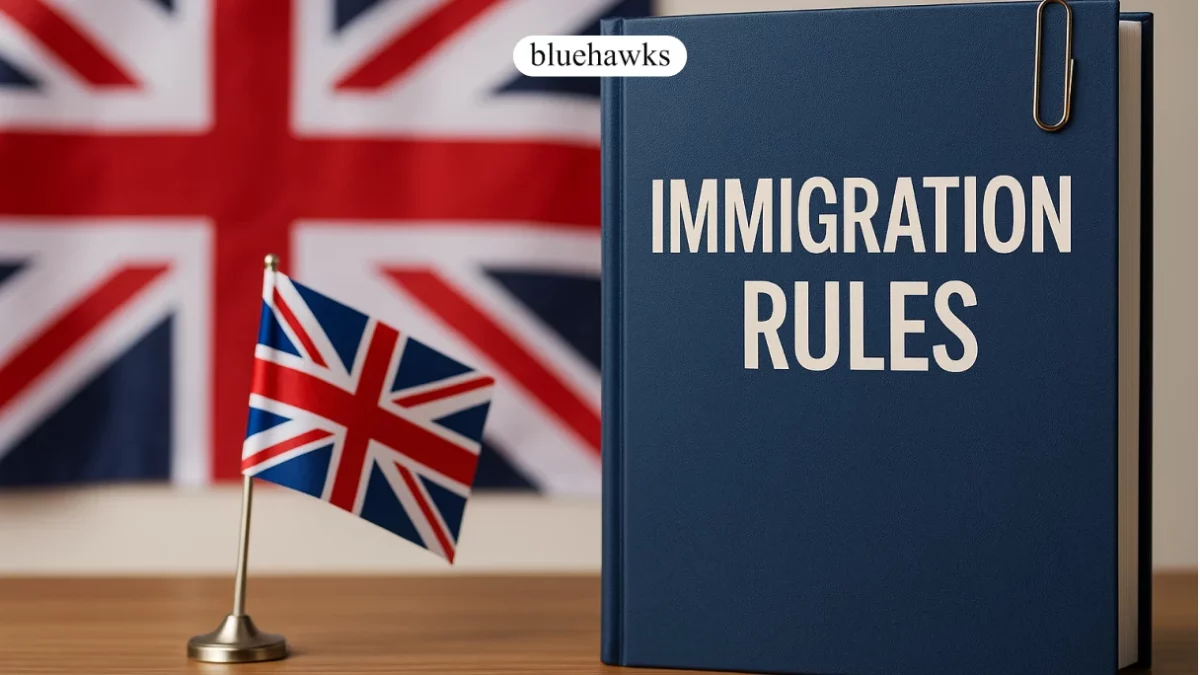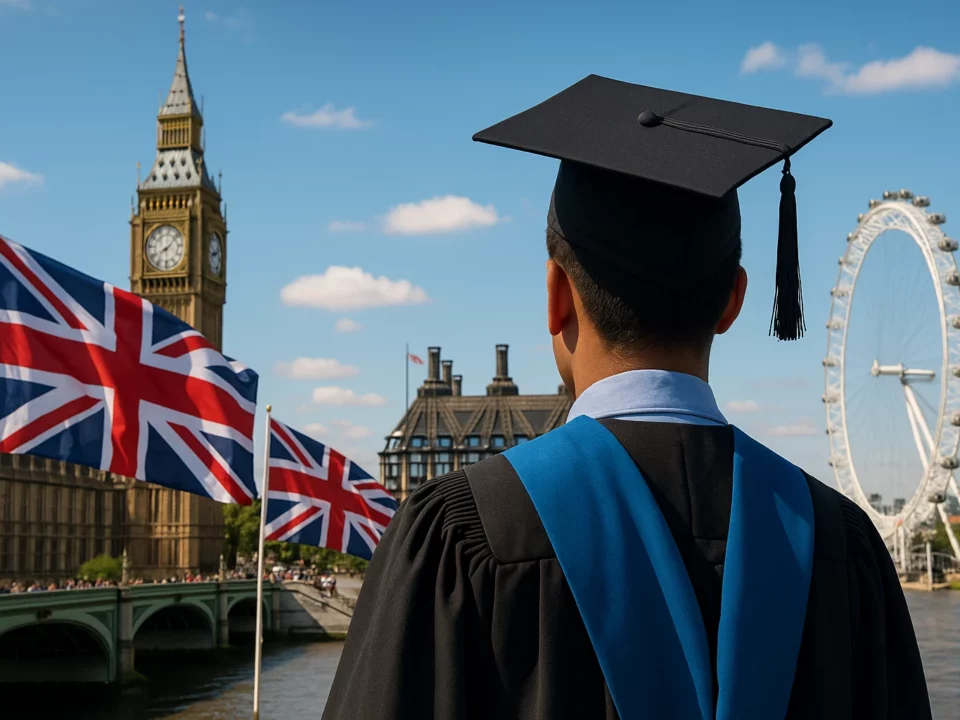UK’s New Immigration Rules: What It Means for Indian Students

Estimated reading time: 4 minutes
Over the past few weeks, there’s been a lot of buzz around the UK’s new immigration rules — especially among students who are planning to head there for their studies. So let’s break it all down for you in simple terms. No jargon. No drama. Just facts and what you really need to know.
Table of contents
First things first: UK’s new immigration rules?
- Post-study work visa (PSW) is now shorter.
Earlier, international students (like you) had 2 years after graduation to stay back and find a job. Now, it’s been reduced to 18 months. Yes, that’s 6 months less, but still more generous than countries like the US or even some parts of Europe. - You need a job paying at least £38,700/year to stay on.
Sounds steep? It’s roughly ₹40 lakhs per year. But here’s the real deal — if you’re heading into tech, finance, healthcare, or even engineering, many entry-level roles already pay this or close to it. Most Indian students going to the UK for serious degrees in high-demand sectors hit this salary range within the first year. - PhD students? You’re chill.
Nothing has changed for you. You still get a solid 3 years after graduation to work and figure things out. That’s a big win if you’re diving deep into research.
So… is the UK closing its doors?
Nope. Not at all.
It’s not closing the doors — it’s raising the bar. And honestly? That’s not a bad thing.
Here’s how:
- Universities are becoming more selective. That means fewer “easy admit” pathways and more focus on genuine students who’ve got the academic and language skills to thrive.
- Higher standards = better classmates, better networks, and a stronger degree.
You’re not just going to the UK anymore — you’re going with a sharper crowd and a higher value degree. That matters in the long run.
But wait, there’s more – the India-UK Trade Deal
Yep, India and the UK have just signed a Free Trade Agreement (FTA). What does that mean for you?
Think: more job opportunities opening up for Indians in tech, healthcare, education, retail, and even creative industries. Basically, this makes the UK job market warmer and more welcoming for skilled Indian grads. Perfect timing.
Where does Bluehawks EduAbroad come in?
Glad you asked.
This is where having the right guidance matters more than ever.
At Bluehawks EduAbroad, we’ve already started helping students adapt to the new UK visa rules. Whether it’s building a stronger application, finding the right high-ROI courses, or helping you understand how to hit that £38,700 salary mark — we’re here for it.
- We don’t just help you get into any UK university. We help you get into the right one — the one that actually aligns with your career goals and visa strategy.
- We make sure your SOPs, LORs, and visa interviews aren’t just done — but done strategically.
- And yes, we also guide you on how to land that Tier 2 job, so you’re not left confused post-graduation.
This new phase of UK immigration isn’t about scaring students off — it’s about welcoming the best-prepared ones. And Bluehawks EduAbroad? We’ve been preparing ambitious students from day one.
TL;DR
- Yes, PSW is now 18 months (not 2 years).
- To stay long-term, your job should pay £38,700/year.
- PhD students still get 3 years.
- Entry is tougher, but your degree is now more valuable.
- India-UK trade deal = more job opportunities.
- The UK is not shutting down, it’s just getting choosy.
- Bluehawks EduAbroad helps you be one of the chosen ones.
So don’t stress. Stay ambitious. Stay prepared. And if you need help navigating all this, you already know who to reach out to.
Want a 1-on-1 UK admission or visa planning session with our experts?
🌎 Chat with our 24/7 chat support team, tap on that chat button on the right bottom of your screen 👉
or DM us on Instagram @bluehawks.eduabroad.
Let’s make this UK dream a smart, well-planned reality.



